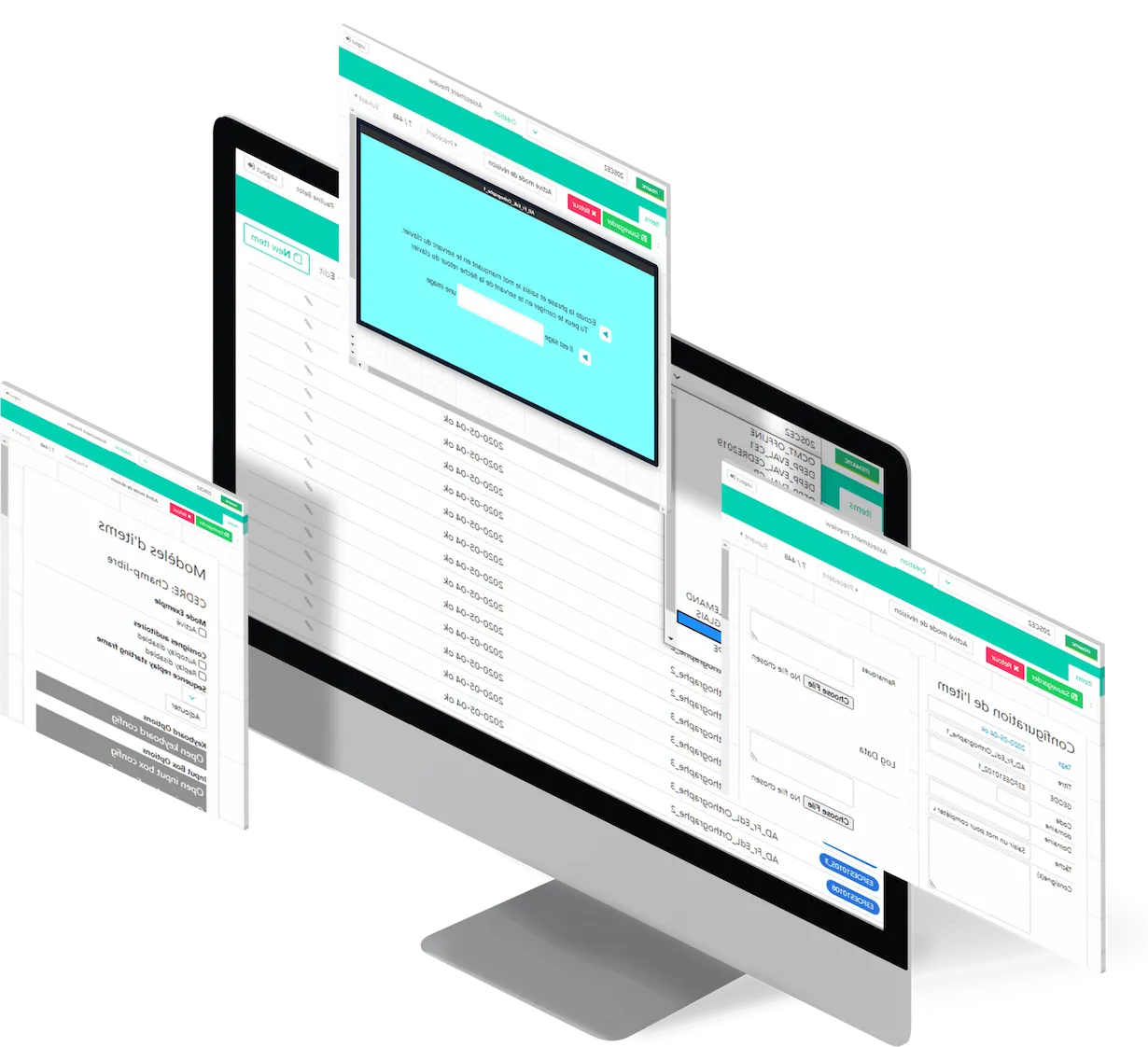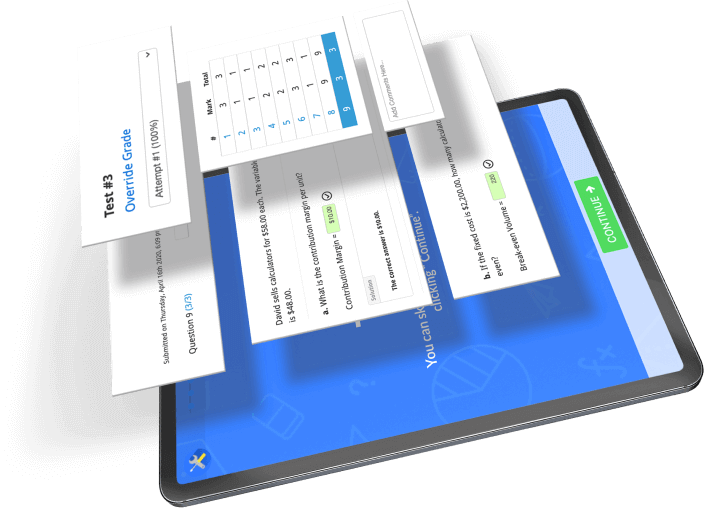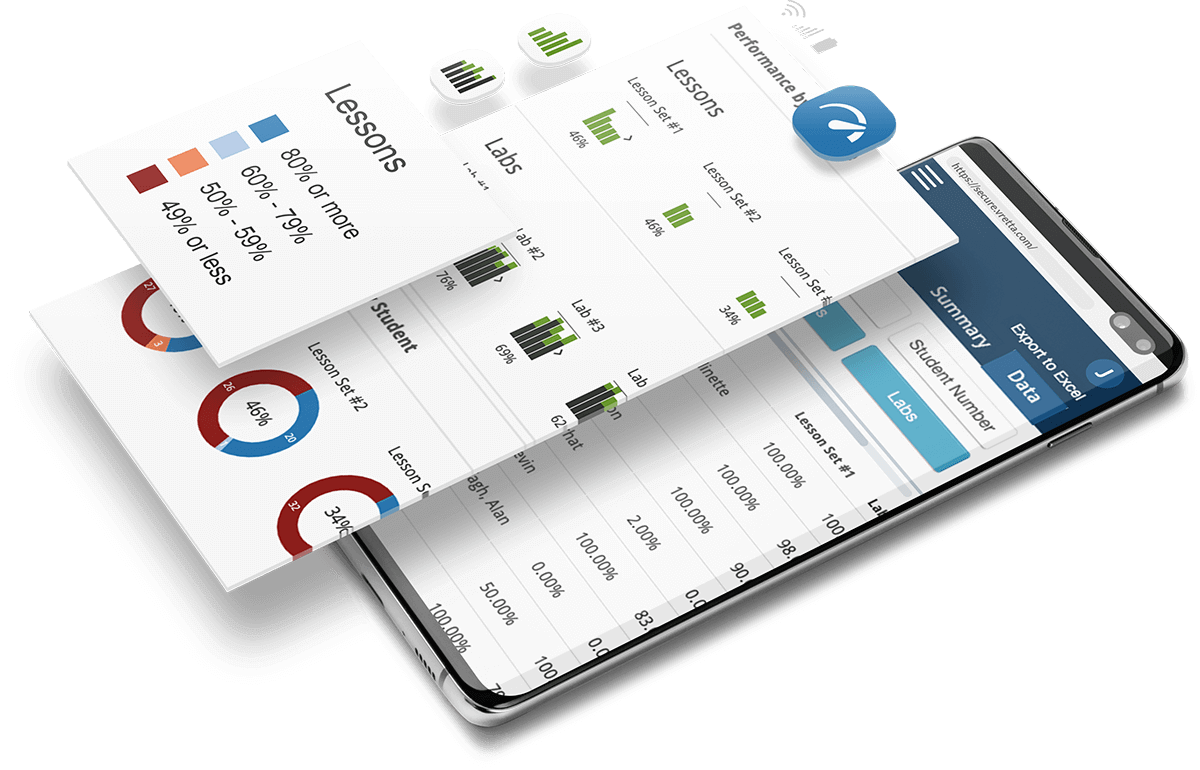SOLUTIONS
Vretta’s diagnostic, formative, and summative assessments are designed and developed to measure and support the success of students. The solutions include the ability to author, administer, mark and score assessments, analyze student responses, and efficiently share results with students, parents and guardians, teachers, administrators, and policy makers. Integral to our approach is a comprehensive digitalization review, which ensures that the assessment services align with the latest digital standards in the industry.
DIGITAL ASSESSMENT CYCLE

Digitalization Review
We first focus on a pivotal process where our assessment architects and business analysts conduct a review of the assessment services delivered by our partners. Based on our findings, we develop a strategic roadmap and comprehensive report to support our partners transition their assessment services to a modernized digital solution.
The recommended solutions through the digitalization review ensure that the assessment services align with the latest digital standards in the industry, ultimately enhancing efficiency, accuracy, and user-satisfaction.

Authoring
Our authoring component provides authors, designers, translators, and reviewers the ability to collaborate to design and develop assessment items for the creation of multilingual item banks. The configurable authoring blocks allow for the creation of interactions covering response types that measure numerous 21st century skills.


The role-based secure access enables users to comment, edit, and review changes using the versioning system, real-time, while developing assessments in a highly efficient and collaborative environment.

Administration
Our assessment delivery solution facilitates the administration of practice tests, standalone or embedded field tests, diagnostic assessments, classroom assessments, and summative assessments. The solution enables choosing from various delivery models, including linear and computer adaptive testing models.
The solution supports various accommodation requirements and has configurable built-in security features, including a lock-down browser and a remote proctoring system that can be enabled based on the stake and usage of the assessment.

Marking and Scoring
Our human marking and machine scoring processes are designed to ensure accurate, consistent, and efficient assessment of student responses. Markers can claim batches of responses, according to batch allocation policies, and have seamless access to scanned and online responses for marking.


Real-time marker dashboards ensure accuracy and management of the marking process, while the item summary dashboard provides information on the assigned markers and their progress on each item.

Data Analysis
All student response data can be processed into a customizable psychometric pipeline which embodies a research-friendly, open-source approach to provide extensive reporting options using Classical Test Theory methods, Item Response Theory methods, or Cognitive Diagnosis Modelling methods.
Our integrated data pipeline provides an automated workflow, a dynamic architecture, and employs functional design principles for the analysis of data by psychometricians and statisticians.

Reporting
Assessment submissions and key metrics, such as logins, submissions, access, scheduled sessions, marker performance, etc., are available real-time. Additionally, individual student reports and school-level data are available with aggregate reports of student results, including proficiency scores, and response statistics.


Reports can be generated in various formats and can be integrated with analytics tools such as PowerBI or Tableau, statistical tools such as R, SAS, and Parscale, and exported as word documents, spreadsheets, PDFs, or HTML format.

